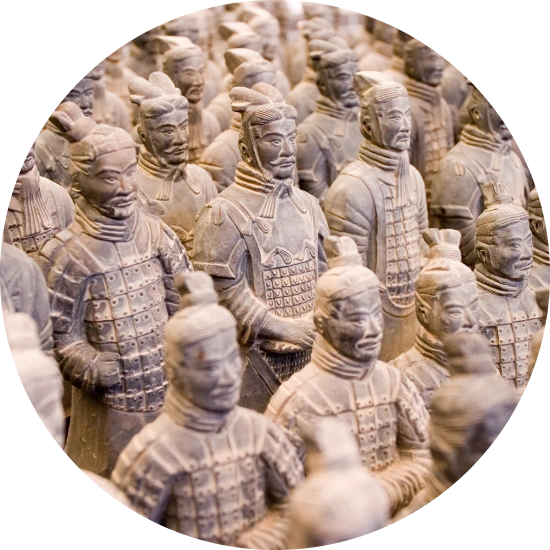Explore the Family Name Song
How common is the last name Song in the United States?
Based on the Decennial U.S. Census data, the popularity of the surname Song has significantly increased from 2000 to 2010. In 2000, Song was ranked as the 1962nd most popular surname, but by 2010, it had moved up to the 1415th position, marking a substantial increase of 27.88%. Likewise, the total count of people with the surname Song also rose from 16,856 in 2000 to 25,110 in 2010, a growth rate of 48.97%. The proportion per 100,000 people also experienced an uptick, escalating from 6.25 in 2000 to 8.51 in 2010, which signifies a 36.16% change.
| 2000 | 2010 | Change | |
|---|---|---|---|
| Rank | #1,962 | #1,415 | 27.88% |
| Count | 16,856 | 25,110 | 48.97% |
| Proportion per 100k | 6.25 | 8.51 | 36.16% |
Race and Ethnicity of people with the last name Song
In terms of ethnicity, the Decennial U.S. Census data reveals that the vast majority of individuals with the surname Song identified themselves as Asian/Pacific Islander, accounting for 95.12% in 2000 and slightly increasing to 95.15% in 2010. The second-largest ethnic identity group is those identifying as White, albeit at a much lower percentage (2.08% in 2000, decreasing to 1.98% in 2010). Interestingly, there was a substantial rise in the number of Hispanics, from 0.43% in 2000 to 0.65% in 2010. Similarly, Blacks went from 0.39% to 0.45% within the same time frame. However, those who identified as American Indian and Alaskan Native decreased by 33.33%, standing at 0.06% in 2000 and falling to 0.04% in 2010.
| 2000 | 2010 | Change | |
|---|---|---|---|
| Asian/Pacific Islander | 95.12% | 95.15% | 0.03% |
| White | 2.08% | 1.98% | -4.81% |
| Two or More Races | 1.91% | 1.74% | -8.9% |
| Hispanic | 0.43% | 0.65% | 51.16% |
| Black | 0.39% | 0.45% | 15.38% |
| American Indian and Alaskan Native | 0.06% | 0.04% | -33.33% |
Song ancestry composition
23andMe computes an ancestry breakdown for each customer. People may have ancestry from just one population or they may have ancestry from several populations. The most commonly-observed ancestry found in people with the surname Song is Chinese, which comprises 47.9% of all ancestry found in people with the surname. The next two most common ancestries are Korean (42.1%) and British & Irish (2.1%). Additional ancestries include Manchurian & Mongolian, French & German, Indonesian, Thai, Khmer & Myanma, Vietnamese, and Chinese Dai.
Ready to learn more about your ancestry? Get the most comprehensive ancestry breakdown on the market by taking our DNA test. Shop 23andMe
| ANCESTRY BREAKDOWN | COMPOSITION |
|---|---|
| Chinese | 47.9% |
| Korean | 42.1% |
| British & Irish | 2.1% |
| Other | 7.9% |

Possible origins of the surname Song
Your DNA provides clues about where your recent ancestors may have lived. Having many distant relatives in the same location suggests that you may all share common ancestry there. Locations with many distant relatives can also be places where people have migrated recently, such as large cities. If a large number of individuals who share your surname have distant relatives in a specific area, it could indicate a connection between your surname and that location, stemming from either recent ancestral ties or migration.
Based on 23andMe data, people with last name Song have recent ancestry locations in South Korea and China.
| RECENT ANCESTRY Location | Percentage |
|---|---|
| Seoul, South Korea | 39.20% |
| Busan, South Korea | 27.20% |
| Daegu, South Korea | 20.30% |
| Jeollabuk Do, South Korea | 18.70% |
| Jeollanam Do, South Korea | 18.60% |
What Song haplogroups can tell you
Haplogroups are genetic population groups that share a common ancestor on either your paternal or maternal line. These paternal and maternal haplogroups shed light on your genetic ancestry and help tell the story of your family.
The top paternal haplogroup of people with the surname Song is O-F8, which is predominantly found among people with East Asian & Indigenous American ancestry. Haplogroup O-F8 is descended from haplogroup O-M1359. Other common haplogroups include N-L665 and O-CTS201, which are predominantly found among people with East Asian & Indigenous American and East Asian & Indigenous American ancestry. Other surnames with similar common haplogroups are: Wang, Lu, Chang, Yu, He, Wu, Zhang, Jiang, Cheng, Xu.
The most common maternal haplogroups of people with Song surname are: A4, F1a1, M7b. These most commonly trace back to individuals of East Asian & Indigenous American and European ancestry.
 Paternal Haplogroup Origins O-M1359
Paternal Haplogroup Origins O-M1359
Your paternal lineage may be linked to the Han Chinese
Haplogroup O-Page23 has been found in several populations of the Han Chinese ethnic group. The ancestors of the Han, called the Huaxia, lived in the upriver basin of the Yellow River 5,000-6,000 years ago. As agricultural technology improved, the Huaxia spread east and south, and became the Han Chinese. Over the last 2,000 years, there have been three major migrations of the Han southward. The first of these migrations occurred during the Jin Dynasty from 317 to 420 CE, when nearly one million people moved south. A second migration occurred during the Tang Dynasty, after the An-Shi Rebellion, between 755 and 762 CE. The last migration occurred during the Southern Song Dynasty, from 1127 to 1297 CE, when nearly 5 million people migrated southward. The Pinghua, a branch of Han in which haplogroup O2a2b1a1 is particularly common, may be descendants of indigenous minority groups that adopted Han culture during one such major migration event.
Your maternal lineage may be linked to the builders of the Terracotta Army
Qin Shi Huang, who unified warring states to become the First Emperor of China and founded the Qin Dynasty, ruled the Chinese state of Qin from 247 BC to 210 BC. In addition to his political feats, his reign is known for the massive construction projects, including his mausoleum in the Shaanxi province of central China, which began construction in 246 BC. To aid him in the afterlife, 8,000 perfectly life-like soldiers were crafted out of molds and clay and placed at guard over his tomb: his own Terracotta Army.An estimated 700,000 workers were involved in the mausoleum construction alone, and in 2003, hundreds of skeletal remains were unearthed near the mausoleum. Curious about the ethnic origins of these men, a group of Chinese scientists decided to examine their maternal haplogroups. They found that some of these workers belonged to haplogroup A, and that the group had come from a variety of places across East Asia.

What do people with the surname Song have in common?
Spoiler alert: it's complicated. People with the same last name are usually no more genetically similar than a randomly sampled group of people from the same population. That said, people with the same surname are more likely to have similar ancestries than randomly sampled individuals. The reason is the tendency of people with similar cultural or geographical backgrounds to preferentially mate with one another. That's why people who share a surname may be more likely to share traits and tendencies in common than people within the general population. Check out the percentages below to see the prevalences of tastes, habits, and traits of people with your surname compared with prevalences among 23andMe users.
Preferences
Traits
Habits
Wellness
Are health conditions linked to the last name Song?
The short answer is that, if there is an association between surname and health, it's usually more about your ancestry than your name. Individuals with a given surname are no more genetically similar than the general population but often have similar ancestries. The populations of people associated with those shared ancestries often have sets of genetic variations, also known as alleles, in common. Some of those alleles are associated with a greater likelihood of developing certain diseases.
Disease variant frequency by ancestry
Disease allele frequencies in populations associated with the surname Song are shown below. Important Note: not everyone with a disease allele will develop these health condition






















